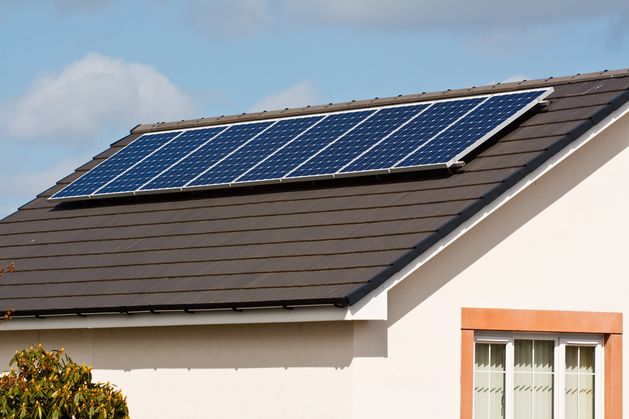Bussiness
How investing in solar panels could offer you better returns than the banks

An Irish-owned wholesale supplier of the equipment has compared the return on investment from solar panels against deposit interest rates in Irish banks.
Solartricity found that investing in solar will generate a return five times more than saving with a bank. Across a range of system sizes, and applying the Sustainable Energy Authority of Ireland domestic grant, Solartricity found that the payback period on the initial investment for the domestic customer is usually less than six years.
This represents a 17pc annualised return, the analysis shows. Over the lifetime of a system, a healthy profit could be made, the company said.
This payback is also shorter in many commercial and agricultural settings due to higher energy consumption and helped by various grant incentives, according to Quentin Gargan, who founded Solartricity and has worked on environmental projects for more than 40 years.
The firm is one of Ireland’s leading suppliers of Solar PV panels and systems to installers for domestic, commercial and agricultural projects.
“Solar panels are an increasingly common sight on Ireland’s rooftops. Householders, business owners and farmers have embraced the technology as they seek to play their part in tackling climate change while saving money on energy bills,” Mr Gargan said.
“It is an exciting opportunity and one that our analysis has shown is also quite lucrative.”
These calculations are based on current electricity prices, which will rise during the lifespan of the system.
Mr Gargan said that there was high initial earning potential. The investment would continue to produce savings when inflation was factored in over the life of the system.
Solartricity said it calculated conservatively that a 4KWp (or kilowatt peak of a system) would produce an energy cost saving of €13,408 over a 15-year period. This works out at an annualised rate of return of 16.6pc. This is due to a lower dependence on the use of electricity from the home’s supplier and the ability to sell electricity back into the grid.
In contrast, the best saving accounts from the banks pay between 2pc and 3pc a year.
“Many families each year consider the best way to save for a rainy day, but what this analysis shows is that investing in a sunny day can be far more beneficial,” Mr Gargan said.
He said there was no bank or financial institution providing anything close to that return on investment. “If a household has the money to invest in solar, there is scarcely a better investment out there. In addition to the financial benefit, you are also playing a positive part in Ireland’s climate action,” he added.
The retail price for solar panels has fallen dramatically in the past few years.
Households can also buy a solar system Vat-free following a recent government decision. Many households can qualify for a grant of around €2,100 when installing a solar system.
AIB and Bank of Ireland recently joined PTSB in offering low-cost loans to homeowners under the state-backed retrofitting Home Energy Upgrade Loan Scheme. With starting interest rates from 3pc, homeowners will be able to borrow between €5,000 and €75,000 later this year to retrofit their homes.










